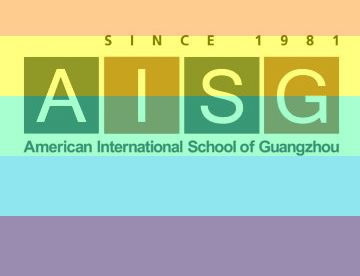
One of the most pressing problems in the world today is the rights of those in the LGBTQ+ community. In some countries, the rights of LGBTQ+ are recognized and protected, but in others, being openly LGBTQ+ is illegal, and sometimes punishable by death. This topic has been a source of great debate and high controversy. Countries such as France, Spain, Canada, Denmark, the US, Sweden, Belgium, Australia, and the UK all have laws protecting LGBTQ+, while countries such as Egypt, Sudan, Nigeria, Iran, Saudi Arabia, Yemen, Afghanistan, and India have harsh, cruel punishments such as whipping and even death for those who are openly LGBTQ+.
Even in the countries where LGBTQ+ rights are recognized and protected, LGBTQ+ are still discriminated against and even killed, simply for not identifying as cisgender and/or heterosexual. Conversion therapy (in which LGBTQ+ individuals are sent to therapy in an attempt to change their sexuality) is still legal in 41 states and is legal in the UK. Internalized homophobia is the oppression of LGBTQ+ individuals so that they take in that oppression and begin to resent themselves, often leading to mental distress. (source) Society has conditioned people to believe that there is only one ‘proper’ way to be and to automatically assume that everyone is heterosexual. This leads to many people who identify as LGBTQ+ believing that there is something wrong with them, often leading to depression or even suicide. This problem is worsening, as LGBTQ+ youth are nearly five times more likely to commit suicide than non-LGBTQ+ youth. (source)
I conducted a short survey, to which 85 students responded. Out of those 85 students, 92% said that they understood what the term LGBTQ+ means, and 83% said that they knew someone who is LGBTQ+. When asked about AISG’s environment regarding LGBTQ+ people, the responses were split nearly down the middle; 51% responded that they do not believe that AISG has a welcoming, friendly environment for LGBTQ+. When asked about their opinion on LGBTQ+ rights, one person simply said “I think people who identify this way should be allowed to feel whatever they want. We have no right to stop them from loving who they love.” Many said that AISG needs to do a better job of educating students about LGBTQ+. One anonymous person suggested “normalizing [LGBTQ+] as a whole”, while another commented that AISG needs to “promote more equality” and that we should just “raise more awareness about LGBTQ community.” Some students raised the concern that students at AISG use the word ‘gay’ as a derogatory term, and that many students use the term ‘no homo’ as a joke when someone of their same gender touches them in what can be perceived as a ‘gay manner’. Other students suggested having health or history units about LGBTQ+ or hosting assemblies in order to better educate people.
Does a student’s nationality have an influence on their opinion on LGBTQ+ rights? Most countries have differing views on LGBTQ+ and the culture from these countries likely impact an individual’s views on LGBTQ+. The US, Canada, Australia and New Zealand, and many European countries are open to LGBTQ+ rights. 31 students who responded to the survey are from one of the aforementioned places. Out of these 31 students, only one said that they did not know what LGBTQ+ was, and 83% said that they knew someone who is LGBTQ+. Many of them said that they supported LGBTQ+ rights, and 60% said that they do not believe that AISG has an LGBTQ-friendly environment.
Countries such as India, South Korea, Japan, and China (where many AISG students come from) have fewer rights regarding LGBTQ+. 45 students of these nationalities responded to the survey. 86% of these students responded that they understood the term LGBTQ+, and 82% said that they knew someone who is LGBTQ+. Most students who responded said that they were supportive of LGBTQ+, however, some remained more cautious, stating that “as long as they don’t interfere too much with my life I believe that each person should have the freedom to pursue their own happiness.” When asked about how LGBTQ+ friendly AISG is, the students were split nearly 50/50. The responses from the two groups did not differ much.
The responses, whether from an LGBTQ+ supporting country or not, generally agreed that people are people and should not be judged for who they love or what they identify as. Many said that AISG needs to do a better job of educating students, and suggested a wide variety of ways that the GSA (Gay-Straight Alliance) can help. It turned out that a student’s nationality generally does not interfere with their opinion on LGBTQ+. Some said that they argue with their parents, so perhaps it is our generation, not our nationality that influences our opinions on LGBTQ+ rights. The overall consensus of the survey was that “gender is not the only thing that shapes what kind of person you are,” and that “it doesn’t matter what or who you love because you are human.” While AISG does have majority student support for LGBTQ+, there is still a long way to go in creating a safe environment, raising awareness, and educating others.
To view the full results of the survey, click here.
5 thoughts on “AISG’s Take on LGBTQ+”
Sorry, comments are closed.